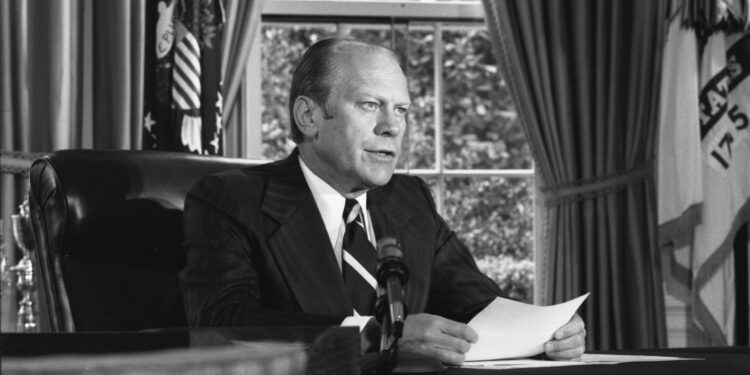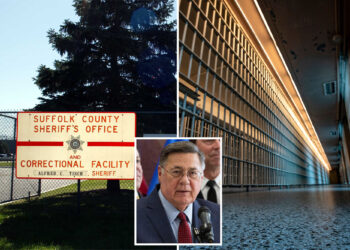The pardon power at the federal or state level has always been corrupt, marred by financial bribes, political favoritism, and abuse of discretion.
That’s because, as The U.S. Supreme Court held in 1974, the pardon power is unfettered. A president under the pardon power granted to them by Article ll, Section 2, Clause 1 of the U.S. Constitution, can grant (or deny) a request for a pardon for any reason or for no reason at all.
Executive clemency will be a focal issue in the 2024 Republican presidential primaries.
Frontrunner Donald J. Trump ignited the issue last September when he vowed to pardon all of the rioters convicted in connection with the January 6, 2021, violent assault on the nation’s capitol building.
The former president went so far as to say that in addition to a pardon, many of the self-described insurrectionists would receive a “government apology” for having been convicted of engaging in sedition and other coup-de-tat-like criminal offenses.
In an effort to keep pace in the Washington Pardon Derby, runner-up Ron DeSantis, the anti-woke candidate, said he would “consider” pardons for some of the rioters/insurrectionists. He may now have to consider if elected, whether he would pardon Trump.
Nikki Haley, currently holding down the fourth spot in the race for the White House, has not taken a stand on the Jan. 6 pardon issue. But a reasonable assumption can be made that she will use her executive pen to give some of the rioters/insurrectionists a “get out of jail free” ticket too if elected.
The former U.N. Ambassador recently called on New York Gov. Kathy Hochul to pardon Daniel Penny, who in May, killed Jordan Neely by way of chokehold on a New York City subway. Jordan, a mentally ill person, was a Michael Jackson fixture in the city’s subway transit system.
Penny said he choked Jordan for 15 minutes because he posed a threat to him and other passengers on the subway. He has been charged with a manslaughter-related offense in connection with Jordan’s death.
Haley apparently believes vigilante justice, the very kind the Jan. 6 mob engaged in, is deserving of immediate pardon consideration.
This absolute power has led every president except two since 1974 to issue controversial, politically-motivated pardons during their tenures in office. Here are just a few:
- President Gerald Ford in September 1974 pardoned disgraced former President Richard Nixon.
- President Jimmy Carter in January 1977 pardoned hundreds of thousands of Vietnam-era draft dodgers
- President Ronald Reagan in April 1981 pardoned two crooked FBI agents who ordered the break-ins of the homes of suspected radicals to gather incriminating evidence against them.
- President George H.W. Bush in December 1992 pardoned six defendants, including former President Reagan’s defense secretary, for their convictions connected to the infamous Iran-Contra scandal.
- President Bill Clinton in January 2001 pardoned convicted Weather Underground terrorist Susan L. Rosenberg and in September 1999 granted executive clemency to 12 imprisoned members of a Puerto Rican terrorist group known as F.A.L.N.
- President Trump in December 2020 pardoned his son-in-law, Jared Kushner’s father, and two of his closest political operatives, Roger Stone and Paul Manafort, and in January 2021 on the day before leaving office he pardoned dozens of more longtime associates and advisors.
Presidents George W. Bush and Barack Obama generally avoided issuing controversial pardons, but Obama, who granted a record number of sentence commutations, did commute the prison sentences of several controversial figures.
Most people believe that a presidential pardon is an exoneration of guilt.
It is not.
A pardon is an expression of official forgiveness.
And, to be valid, the Supreme Court held in a 1915 decision that a pardon must be accepted. It is a deed that without acceptance is invalid and a court cannot force acceptance.
Some innocent individuals will not accept a pardon because the Supreme Court in that 1915 decision held that acceptance of a pardon “carries an imputation of guilt; acceptance of it is a confession of guilt.”
Some modern constitutional scholars believe, and the Tenth Circuit Court of Appeals has recently held, that acceptance of a pardon is not a legal confession of guilt.
However, this 2021 Tenth Circuit decision runs against the grain of a 2001 D.C. Court of Appeals decision which held that acceptance of a pardon “may imply a confession of guilt.”
The D.C. appeals court decision cited with approval both the 1915 Supreme Court decision and a 1990 Third Circuit Court of Appeals decision which also followed the lead of the 1915 Supreme Court decision.
Those legal facts state a reasonable conclusion can be drawn that acceptance of a pardon is an admission of guilt because a pardon is an act of forgiveness, not a deed of absolution.
In fact, some states, like Nevada and New York, make it abundantly clear that a pardon does not erase a conviction—it remains in court records and law enforcement files.
Video footage of the more than 600 rioters who have pleaded guilty or been convicted of attacking police officers, destroying government property, and threatening the lives of prominent political figures will never go away.
Whichever candidate who supports pardons for all or some of these individuals and who becomes president will not absolve these insurrectionists of their guilt with a pardon.
And it is a sad commentary on the political character of America that pardons for insurrectionists are now a “talking point” in a presidential election.
Billy Sinclair spent 40 years in the Louisiana prison system, six of which were on death row. He is a published author, an award-winning journalist (a George Polk Award recipient) and the co-host with his wife Jodie of the criminal justice podcast, “Justice Delayed.”























